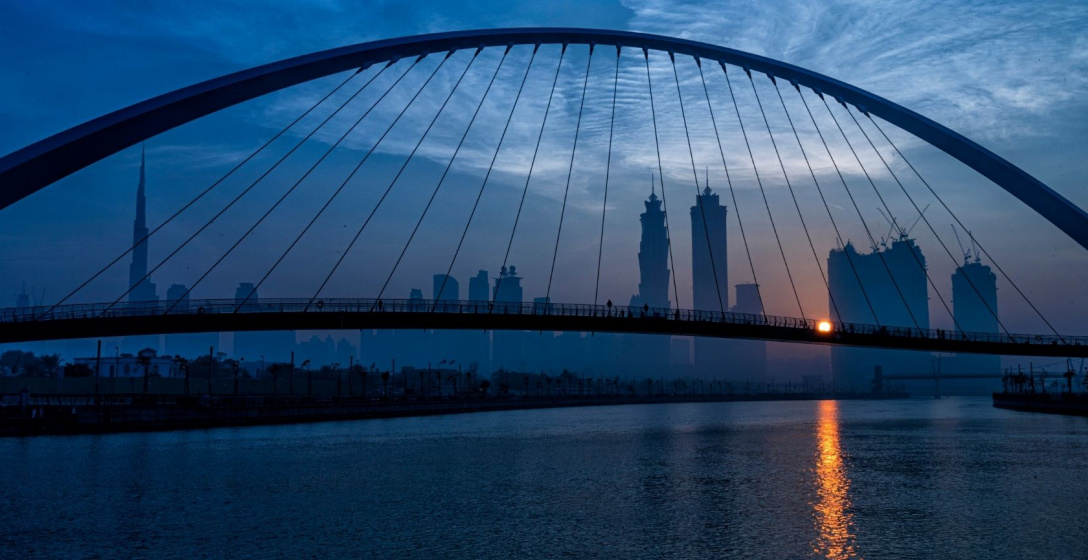At K2 we know that an assignment is more than just a move and we appreciate the importance of a holistic approach to helping assignees feel at home in their host location. Embracing local customs and celebrations can go a long way to making you feel more settled.
Across the globe there are customs and celebrations with huge cultural significance in different regional locations and in the Middle East, Ramadan is one such practice. Ramadan is the most sacred month of the year for Muslims. Considered a time for reflection, purification and prayer, Muslims fast every day from dawn to sunset during the month of Ramadan, demonstrating spiritual discipline and devotion.
This year Ramadan will begin on April 2nd. A long public holiday will follow at the end of the month of Ramadan in celebration of the holy festival of Eid al Fitr.
It’s important for relocating employees in Middle Eastern countries to take the time to understand and embrace the spirit of Ramadan and be aware that they may need to make small adjustments to their day-to-day life during this period.
As expats themselves, the K2 UAE team know first-hand that getting used to a host country’s differing customs, celebrations and cultural influences and traditions can be a major undertaking and potentially one of the most overwhelming aspects of relocating; presenting challenges both inside and outside the workplace. With this in mind, we asked them to provide some top tips for living and working in the region over Ramadan.
Ramadan in the UAE – tips for assignees
- Whilst there is no expectation for non-Muslims to fast during Ramadan in the Middle East, it is important to note that it is not permitted to eat, drink, smoke or chew gum in public areas or on transport during fasting hours. Non-Muslims are of course able to eat and drink as normal at home.
- In terms of workplace behaviours, it’s recommended, where possible, that business meetings are held in the first part of the day, taking into account fasting participants energy levels.
- Expats are expected to observe modest dress rules and avoid any public displays of affection at all times, but following this etiquette is of particular importance during Ramadan.
- On the roads, traffic is usually heaviest within an hour of sunset, as this is when Muslims travel to their Iftar destination to break their fast so you may want to plan journeys around this to minimise disruption.
- When it comes to retail and leisure, shopping malls are usually very crowded during the evenings. In most places live entertainment is prohibited; nightclubs will close, bars may remain open but without any music.
General advice for UAE relocations
At K2 we always seek to deliver our services with experience, expertise and empathy to the diverse needs of individual relocating employees and their personal circumstances. Lived experience and local knowledge are two things that help us, and our partners, to successfully equip assignees with the relevant knowledge for life in a new location.
We asked members of the K2 UAE team what one piece of local knowledge or insight they’d view as most valuable for anyone in the process of considering an assignment to the UAE:
Sam Daly, Country Manager:
“Of course, each and every country around the world has its own laws, values, social norms and way of life. The UAE is certainly no exception to this and, while the local regulations may not be quite as restrictive as many people expect, it is important to understand that a certain standard of behaviour is expected throughout the region.”
Danielle Salmon, Relocation Manager:
“Many places in the UAE are gender divided, such as waiting areas, beauty salons/hairdressers, public transport, and general queues in government facilities. If you are a male looking to move to the UAE, you should bear this is mind and keep a close look out for women only signs in public spaces.
Before making your move to the UAE it is wise to ensure you have some knowledge of the laws that are in place as there are stricter punishments and longer prison sentences than in the West. For example, taking a photo of someone without consent can mean a jail sentence and or large fine. On the flip side, there is an extremely low crime rate here in the UAE.”
Adelaide Mbonambi, Relocation Consultant:
“To open a bank account in the UAE, you need to provide a UAE residence visa, Emirates ID (which may take a few weeks to obtain) and a salary certificate from your employer. As you might not have all these documents right away, it’s best to have some easily accessible funds at your disposal on arrival.”
How K2 can assist with settling-in
As an extension of our Relocation Management Services, K2 offer a whole suite of Destination Services. These settling-in and language and intercultural awareness packages are delivered by local specialists within our Globally Accredited Partner Programme, and aim to support successful integration for your employees.
This extra support can be particularly important when there are big differences in home and host country cultures. Tailored to specific requirements and policies, these programmes provide employees with the tools required to more easily adapt and navigate their new environment with confidence, in both professional and personal settings, avoiding any faux pas.
If you’d like to find out more about the additional services K2 can offer assignees, to support successful relocations, get in touch with a member of the team today.

